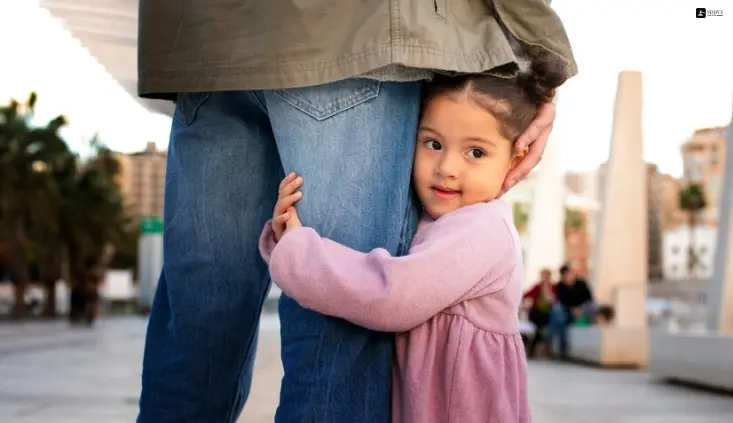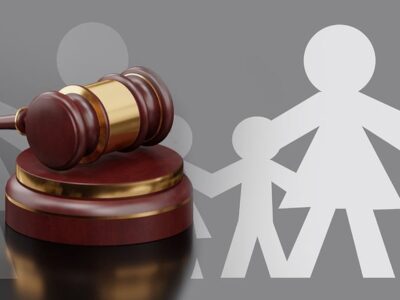
Child guardianship is a legal status that includes caring for a child and making crucial decisions on their behalf. Moreover, it is a considerable commitment that involves not only the child’s emotional and physical well-being but also their financial and legal matters. But you might wonder now, what are child guardianship benefits? Do not worry; in this article, we will be discussing this question in more detail and explore more about child guardianship within family law statutes of the United States.
What Is Child Guardianship?

Child guardianship is a concept that allows individuals or couples to provide for the welfare and needs of a child when their biological parents are unable to do so. Moreover, the appointed guardian is known to assume the responsibilities of a parent, caring for the child’s education, health, and upbringing.
The nature of the role of a child’s guardian is generally flooded with questions regarding the financial implications and benefits of the role. Moreover, individuals involved in child guardianship are also known to wonder whether they’ll receive any financial support for the role.
Moreover, the definition of child guardianship also differs from one state to another. However, the overall aspect of child guardianship remains the same, which is providing care and protection to a child who is unable to get those from their biological parents.
Suitability of child guardianship
There are various reasons why a child is given up for guardianship. Some of them are included below:
- The child’s parents have passed away.
- The child is living in an unsafe and hostile environment.
- The parent of the child no longer wants to care.
- The child’s parents are unable to care for them.
- The child has lived with the potential guardian for a long duration.
- The child doesn’t want to be adopted, or parental rights can’t be terminated.
- The child benefits from the relationship with the guardians.
- The potential guardian is willing to provide the child with a permanent home.
Rights and Responsibilities of Child Guardianship

Guardians of a child are mandated to have rights and duties towards the child they are caring for. Some of the rights and responsibilities associated with being a guardian of a child are as follows:
- Establishment of a safe and stable living environment for the child
- Ability to provide adequate food, clothing, and education for the child.
- Diligent in providing regular medical, dental, and mental health care.
- Having the authority to consent for school enrollment.
- Ability to provide consent to health and mental health services.
- Power to make decisions on behalf of the child.
Some states in the United States might allow guardians to consent on behalf of the child in significant life events like marriage, enlisting in the armed forces, and effective medical treatment.
What are the two kinds of child guardianship?

There are two kinds of child guardianship within family law. These are temporary and permanent child guardianship. Moreover, terms within each type vary from state to state.
Temporary child guardianship
Generally, temporary child guardianship is defined by the guardian’s capacity to take quick assumption of the child. This means the guardian will only care for the child for a limited time. Moreover, temporary child guardianship is recognized for its ability to be designated in times of emergency. Meaning the child might be facing immediate risks to their health or safety. There are other factors apart from this that might lead to the designation of temporary child guardianship. Some of them are as follows:
- The child’s parents will travel for a long time, making the child vulnerable.
- The parents of the child might have temporary disability or medical condition that restricts them from taking care of their child.
- A temporary guardian is required for the child until a permanent guardian is considered.
In various circumstances, the family court might impose a time or conditions during which the child’s guardianship will be in effect. Generally, temporary child guardianship might last up to 6 months in the US.
Permanent child guardianship
Child guardianship that is appointed for a permanent time is a legal procedure. Moreover, permanent child guardianship lasts till the child reaches the age of majority. Similarly, this type of guardianship usually requires an order from the court for its termination.
For instance, permanent guardianship shall end if the child or guardian dies. Or if the judge decides that the guardianship no longer serves the child’s best interests.
Child Guardianship Benefits

You have had doubts about the child guardianship benefits associated with being a child’s guardian. Becoming a guardian for another person’s child has some vital benefits, leading to individuals seeking the legal path of becoming a child’s guardian. Here are some of the child guardianship benefits mentioned below:
Enhance the child’s life
Becoming a child’s guardian has various benefits. One such benefit is improving the child’s life. After you become a guardian, you will become sure that you have a big part in improving the child’s life under your guardianship. Moreover, after becoming a guardian, you will also observe the decrease in delays and complexities while making decisions for the child.
Gaining legal rights
Child guardianship has another benefit: gaining legal rights to make decisions in the child’s life. Moreover, you will also have the legal rights to make financial, medical, and other vital decisions on behalf of the child.
Social benefits
In many circumstances, especially with minor children, the parent or legal guardian must sign a legal document that will make you their guardian. Moreover, being appointed as a child’s guardian will assist you in avoiding unnecessary complexities while making decisions for the child.
When is child guardianship necessary?

Child guardianship is necessary when individuals can’t decide for themselves due to incapability. For instance, if a child’s parent passes away before the child reaches the age of majority (age 18). Similarly, children can’t make their own decisions before the age of majority. Moreover, children can’t enroll themselves in school, cannot provide consent for medical treatment, or make their own financial decisions.
Another reason child guardianship might be necessary is when child abuse or neglect occurs. In such a situation, a guardian is required to protect the child from the hostile environment. Moreover, in such cases, Child Protective Services might take over the problem and remove the child from the unsafe environment of their biological parent’s home. Similarly, if the authorities feel appropriate, the child might need an adult to make decisions in their best interests instead of their parents.
Even though a guardian might be appointed for a child, guardianship does not mean termination of parent rights. Moreover, a guardian the court appoints has legal powers to make decisions for the child. As a guardian, you will also have to decide about the child’s mental health care, medical care, and finances. Guardians who are known to make financial decisions for the child are also known as conservators. Similarly, finances covered through conservatorship might include the child’s personal property and social security payments.
Do legal guardians receive money from the state?

Generally, child guardianship is not a paid position. If you assume child guardianship, they do not normally receive a regular income as a salary for their services. This needs to be clarified among many while considering the economic side of child guardianship.
Moreover, this does not mean guardians are not supported in their roles. There are ways to ensure guardians are not economically disadvantaged. For instance, guardians have the right to receive reimbursement for the expense incurred for fulfilling their guardianship role. These expenses include school fees, medical fees, transport fees, and other requirements of the child.
The roots of such reimbursements generally originate from the child’s estate. This is mainly true in cases where the child has assets. Moreover, the state might also provide you with financial assistance if appointed as a guardian for a child.
Similarly, the nature and extent of a reimbursement depends mainly on the circumstances and legal structure within a particular state. In some situations where the child’s assets are sizeable, the court might grant the guardian compensation for their duty. Moreover, this compensation is generally for the service provided.
“Reasonable compensation” could be a flexible term that can change from one case to another. The court shall define reasonable, considering various factors for child guardianship compensation. This could be a percentage of the expense required for the child’s proper upbringing.
Guardians who also take care of the child’s financial matters are mandated to maintain a record of the expenses and income to take care of the child. Similarly, this is done to maintain transparency and prevent misappropriation of the child’s funds. The courts frequently check the financial records to protect the child’s economic well-being.
Challenges of child guardianship
While there are various child guardianship benefits, there are challenges, too. Here are some of the difficulties associated with child guardianship mentioned below:
Long term commitment
Guardianship can be extended from a few weeks to various years, depending on the circumstances. Moreover, such a commitment might be demanding and affect other areas of life for you (as a guardian). For instance, caring for a child can affect your personal goals, career goals, and relationships.
Potential legal battles
The procedure for attaining guardianship for a child involves navigating the legal system. This can be complex and time-consuming. Moreover, earning child guardianship could lead to court hearings and compliance with specific legal requirements.
Increased Responsibility
After being a guardian of a child, you will have increased responsibilities. This is because the role will require you to have more duties than caring for a child. Moreover, it will need a heightened sense of responsibility for making proper decisions on behalf of the child. So, the seriousness of responsibility should not be underestimated.
Final Thoughts
Now you have a better regarding what are the child guardianship benefits within family law. Make sure you consult with an experienced family law attorney before you venture into child guardianship. Also, ensure you are ready to become a child’s guardian, as it comes with increased responsibilities.
Read Also:


